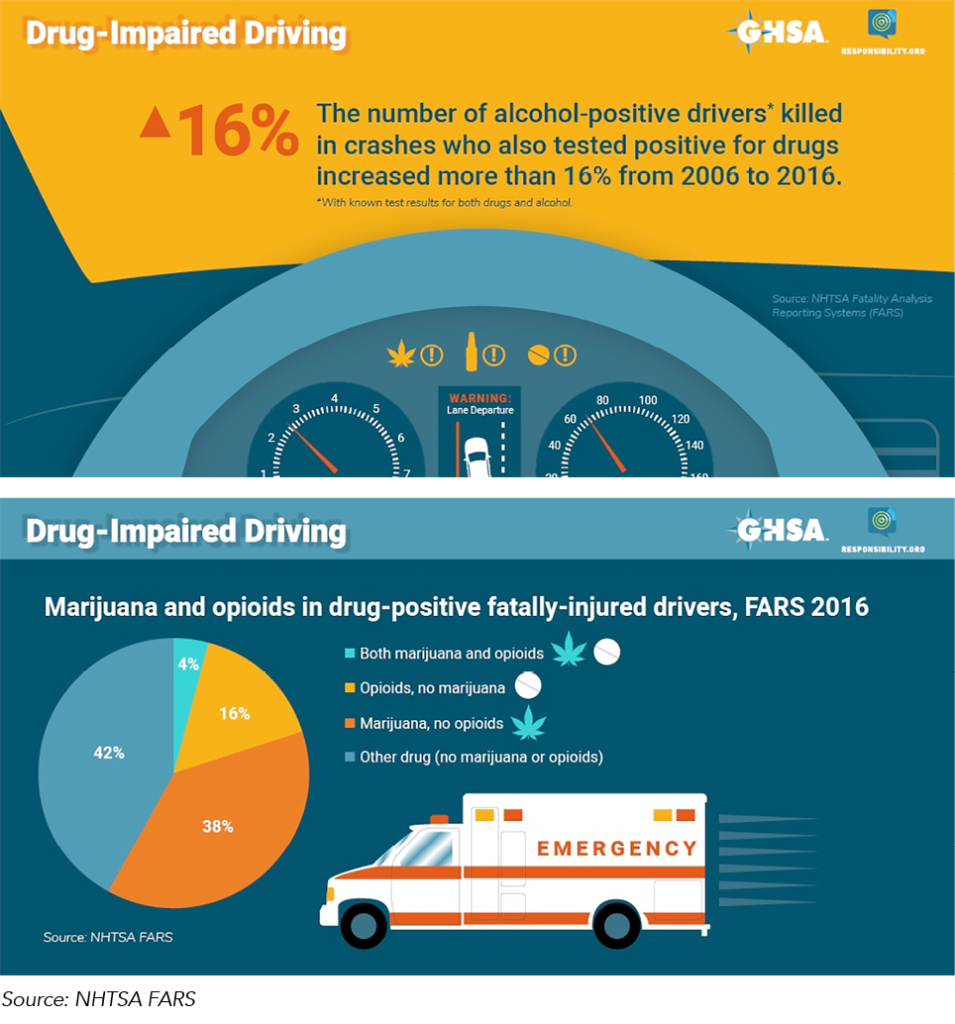Driving Under the Influence of Drugs and Alcohol
 Teens are at far greater risk of death in an alcohol-related crash than the overall population. This is despite the fact they cannot legally purchase or possess alcohol in any state. When alcohol is added to the inexperience of teen drivers, the results can be deadly. About 28 people die every day in drunk-driving crashes in the United States. That is the equivalent to one person every fifty-two minutes.
Teens are at far greater risk of death in an alcohol-related crash than the overall population. This is despite the fact they cannot legally purchase or possess alcohol in any state. When alcohol is added to the inexperience of teen drivers, the results can be deadly. About 28 people die every day in drunk-driving crashes in the United States. That is the equivalent to one person every fifty-two minutes.
Not only does alcohol impair your ability to drive safely, but many illegal, prescription, and over-the-counter drugs can also impair your ability to drive. Drugs other than alcohol are involved in approximately 20 percent of deaths among motorists each year. Additionally, combining drugs and alcohol further increases their impairing side effects and greatly increases the risk of a crash.
Sixty-five percent of drivers involved in serious injury or fatal crashes tested positive for at least one drug. Drugs affect your brain function and can seriously impair your ability to drive safely. For example, marijuana can slow reaction time, impair judgment of time and distance, decrease coordination, and decrease the ability to multi-task. Cocaine and methamphetamine can cause a driver to be aggressive and reckless when driving, and certain kinds of sedatives can cause dizziness and drowsiness. Opioids can make you drowsy and can slow reaction time. Prescription and over-the-counter drugs such as sleeping pills, cough medicines, antihistamines and decongestants can also affect your driving skills in a variety of ways.
It is always important to review warning labels about a medication’s side effects prior to driving. If you have any questions about your medication’s side effects, it is important to consult with your doctor or pharmacist before driving. Remember that when you see a warning label that states, “Don’t operate heavy machinery,” your vehicle is heavy machinery!
If you are concerned about a loved one’s or you own substance use, call, text, chat, or email HELP4WV. Call or text 844-435-7498 or visit Help4WV. This resource is staffed and available 24/7/365 to answer your questions and connect you to treatment providers.